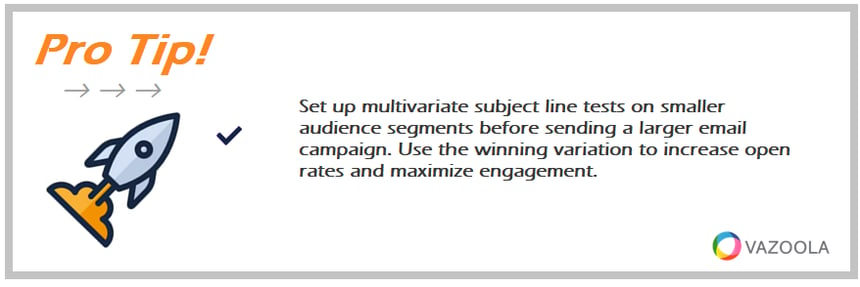8 Ways to Amplify Content Online
Jul 11, 2025
Written by Casey Bjorkdahl

Casey Bjorkdahl is one of the pioneering thought leaders in the SEO community. In 2010, Casey co-founded Vazoola after working for a Digital Marketing Agency for five years in New York City. Vazoola is now one of the fastest growing and most widely recognized SEO marketing firms in the country.

To stand out in today’s noisy digital world, publishing great content just isn’t enough anymore. Without a plan to get it in front of the right audience, even the best content can and probably will fall flat on its face.
To avoid this frustrating predicament, you need to amplify your content. Content amplification is the strategic distribution of content across multiple channels to expand reach, increase visibility, and drive even more engagement.
With organic reach on social platforms shrinking and competition for audience attention rising, digital amplification has become a must-have—not a nice-to-have.
A smart amplification strategy means your content works harder, travels further, and delivers stronger results.

Key Takeaways
-
Content amplification involves distributing content strategically to reach a broader audience and boost engagement.
-
Effective amplification can lead to increased brand awareness, higher website traffic, and improved search engine rankings.
-
Utilizing a mix of paid, earned, and owned media channels enhances the effectiveness of content amplification efforts.
-
Regularly analyzing performance metrics helps refine strategies for better results over time.
Table of Contents
What is Content Amplification?
Why does content amplification matter in SEO?
Content amplification is the strategic process of distributing and promoting content through various channels to increase its reach and engagement.
In today's digital landscape, where organic reach is declining and competition is intensifying, amplification is essential for ensuring that content reaches its intended audience and achieves its desired impact.
Benefits of Content Amplification
What are the benefits of amplifying content? Effective content amplification offers several advantages, including:
-
By promoting content across multiple platforms, brands can increase visibility and reach a wider audience.
-
Targeted promotion encourages higher engagement with more shares, likes, comments, and click-throughs.
-
Amplified content can earn backlinks, which help improve domain authority and rankings, boosting SEO.
-
Consistent amplification positions your brand as a thought leader in your space, increasing credibility.

How to Amplify Your Content Online
What are the best ways to successfully amplify content online?
To get the most from your content, you need a deliberate and multi-channel amplification plan.
Check out these eight proven ways to expand your content’s reach and boost its results.
1. Paid Social Media Campaigns
Paid campaigns are one of the most direct ways to promote content. Platforms like Facebook, Instagram, LinkedIn, and TikTok allow marketers to amplify their content in a few key ways.
First, they can target specific demographics, job titles, interests, and behaviors. They also can retarget past visitors who engaged but didn’t convert.
The strategy also allows marketers to boost top-performing content that already shows strong organic engagement.
For example, Facebook Ads Manager allows you to set up lookalike audiences based on website visitors or email subscribers, helping expand reach to similar users.
For best results, try tracking metrics such as click-through rate (CTR), cost per click (CPC), engagement rate, and return on ad spend (ROAS).

Stack multiple targeting filters—such as job title + company size + remarketing list—to narrow focus. This increases ad relevance and lowers cost per click by reducing wasted impressions.
2. Influencer Amplification
Partnering with influencers helps you access trusted audiences who are likely to engage. Influencers can share your content organically or as part of a paid campaign.
They also can co-create content, such as videos, blogs, or posts. They even can provide testimonials or mentions within their niche.
Always tag influencers you quote or reference. This increases the likelihood they’ll share your content.
Remember, micro-influencers often can offer higher engagement at lower costs. Authenticity matters more than mere follower count.

3. Organic Social Sharing
Don’t overlook the importance of social media amplification. There are actually at least 13 ways social media helps your SEO. After all, posting consistently on your brand’s social media accounts keeps your content active and discoverable.
When sharing content organically on social media, consider these best practices:
-
Share in multiple formats like static images, short videos, carousels, and threads.
-
Post during peak engagement times.
-
Use 3–5 relevant hashtags.
-
Tag collaborators, sources, and featured brands.
Evergreen content can be reshared every few months, giving it new life.

Instead of handing influencers pre-written material, collaborate on original content (e.g., co-branded videos or Q&As). This increases authenticity and boosts algorithmic performance on social platforms.
4. Content Syndication
Syndication helps you scale content distribution. This involves republishing existing content on third-party platforms like:
-
Medium
-
LinkedIn
-
Quora
-
Reddit
-
Paid services like Outbrain or Taboola
Be sure to use canonical tags when syndicating to avoid duplicate content penalties in search engines.
What are some examples of content syndication?
Why not reach new audiences with evergreen blog posts, or republish thought leadership content to professional communities? You might even test the performance of different headings, checking to see how they do on different platforms.

5. Email Amplification
Email remains one of the highest ROI content distribution channels. According to a Litmus survey, the average email marketing ROI is $36 for every $1 spent.
There are a few ways to amplify your content with email. You might include blog highlights or video links in your monthly newsletter. You also can use segmentation to target audience subsets (e.g., customers, leads, partners).
Try to write subject lines that tease key takeaways, and use email marketing tools like Mailchimp, ConvertKit, or HubSpot.

6. Niche Community Engagement
Niche communities gather engaged users who value helpful insights over promotion. Share your content in:
-
Slack groups (e.g., Superpath for content marketers)
-
Subreddits (e.g., r/marketing or r/SEO)
-
Discord servers for creators and entrepreneurs
-
Professional groups like GrowthHackers and IndieHackers
Always add value to the discussion. Don’t just drop a link—contextualize your content.

Before sharing in niche communities, tailor your angle to reflect that group’s language or struggles. For example, position SEO advice for r/Entrepreneur differently than for GrowthHackers.
7. User-Generated Content and Employee Advocacy
Leverage your team and audience to promote content organically. Ask happy customers to share reviews or testimonials, feature user photos or videos in your branded content, and encourage employees to reshare blog posts or case studies on LinkedIn.
You can incentivize employee participation by encouraging branded hashtags, holding contests and giveaways, and creating shareable content templates for your employees. Many businesses now take this strategy with their customers, as well.
According to an oft-mentioned study attributed to the MSL Group, content shared by employees gets 8x more engagement than brand channels.

Avoid simple reposting. Instead, reframe the content with a different hook, headline, or audience-specific examples for each platform to make syndicated content feel native and fresh.
8. Search Engine Optimization for Long-Term Amplification
Good SEO amplifies your content passively, over time. Optimized content ranks in search engines and continues to deliver value months or years after publication.
If you want to amplify your SEO over the long term, make sure you follow this checklist:
-
Research and include target keywords.
-
Add internal and external links.
-
Write compelling meta descriptions and page titles.
-
Use schema markup for better indexing.
-
Monitor performance in Google Search Console.
Tools like Ahrefs and SEMrush can help identify top keywords and backlink opportunities.

Group related content into clusters linked to a single pillar page. This internal linking strategy strengthens topical authority and improves performance across the cluster in SERPs.
Maximize Content Amplification Efforts
What are some more ways to maximize content amplification? Make sure to consider strategies such as the following.
Employ SEO Tools
Use SEO tools and social media amplification tools like Buffer (social scheduling), BuzzSumo (trend discovery), and BuzzStream (outreach) to streamline the process.
Boost Your Best
Amplify only your highest-performing content. Focus your efforts on what’s already proven effective.
Combine Efforts
Combine paid, owned, and earned media for best results.
Test and Adjust
Continuously test and optimize your marketing amplification tactics. Aim for steady improvement.

Enhance Your Content's Reach
In a world where quality content alone is no longer enough, content amplification ensures your message doesn’t get lost in the noise.
By applying a mix of the strategies above—tailored to your goals and audience—you can expand your reach, increase engagement, and deliver lasting results from your content marketing efforts.

Set up multivariate subject line tests on smaller audience segments before sending a larger email campaign. Use the winning variation to increase open rates and maximize engagement.

